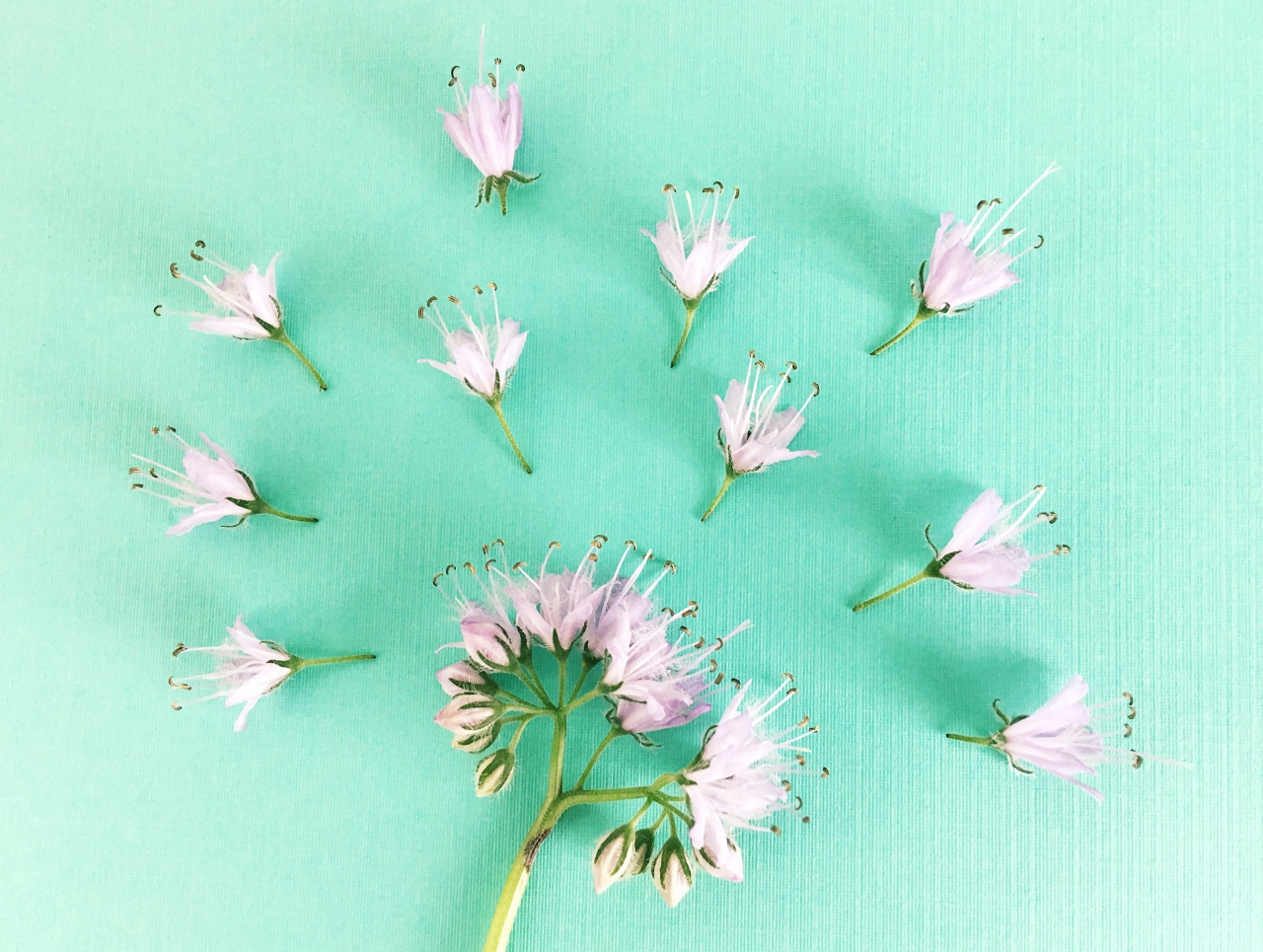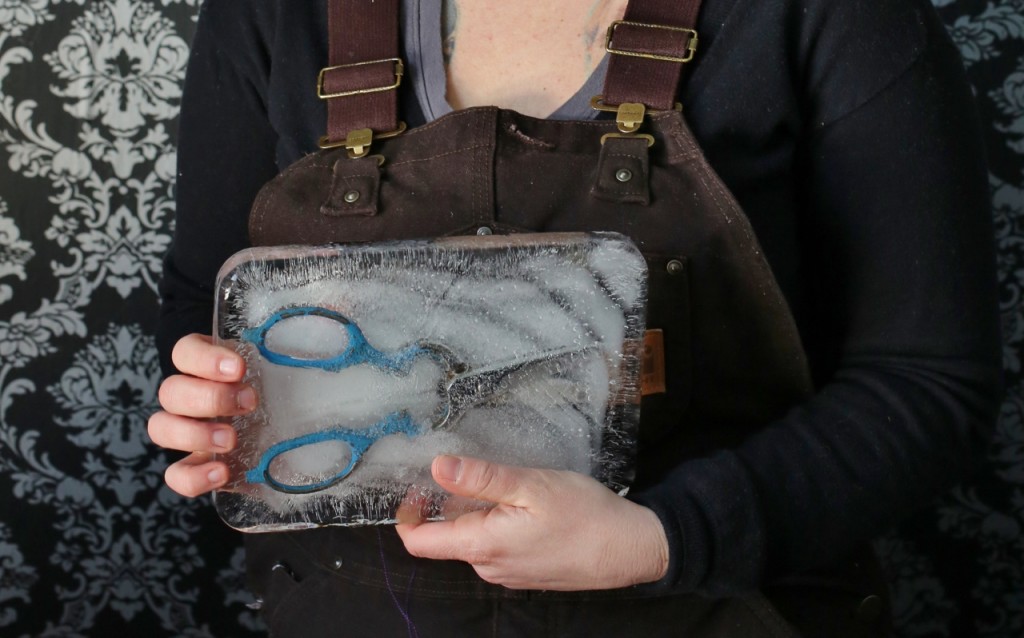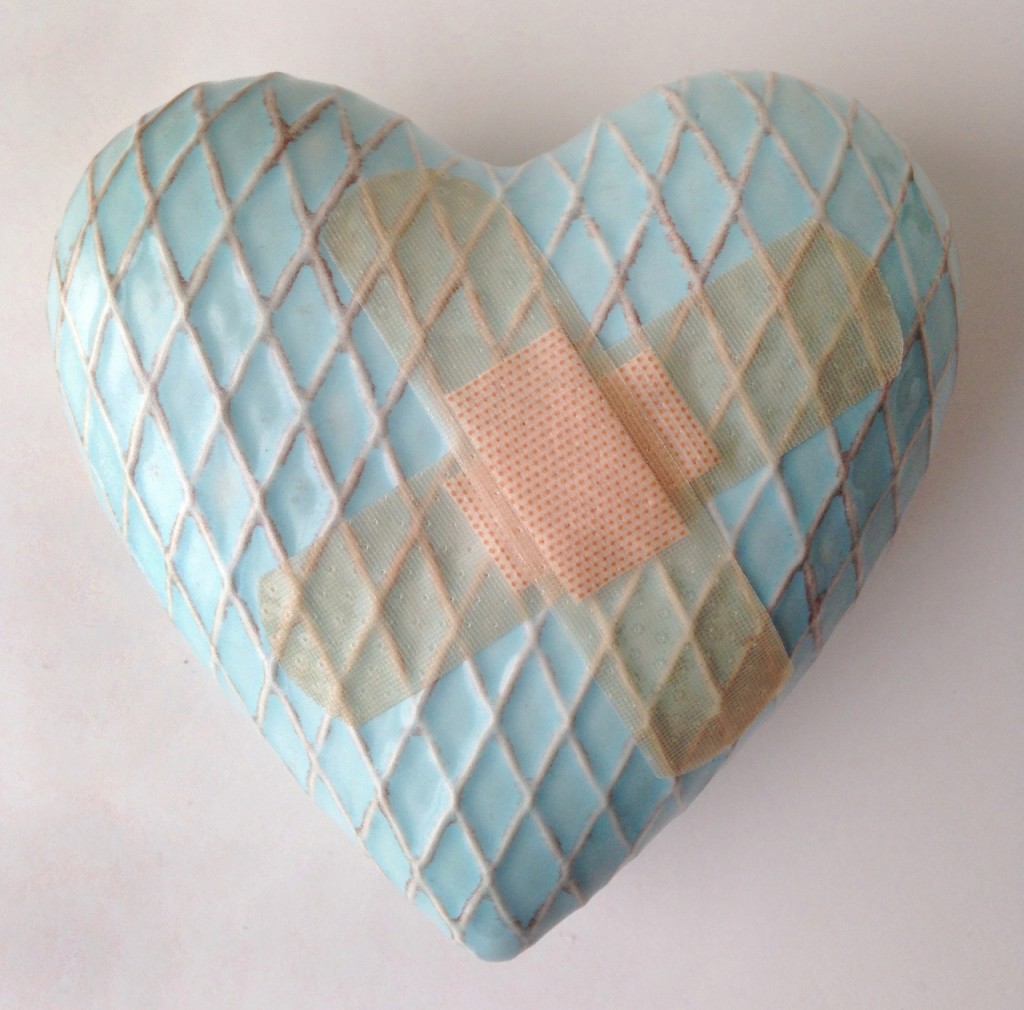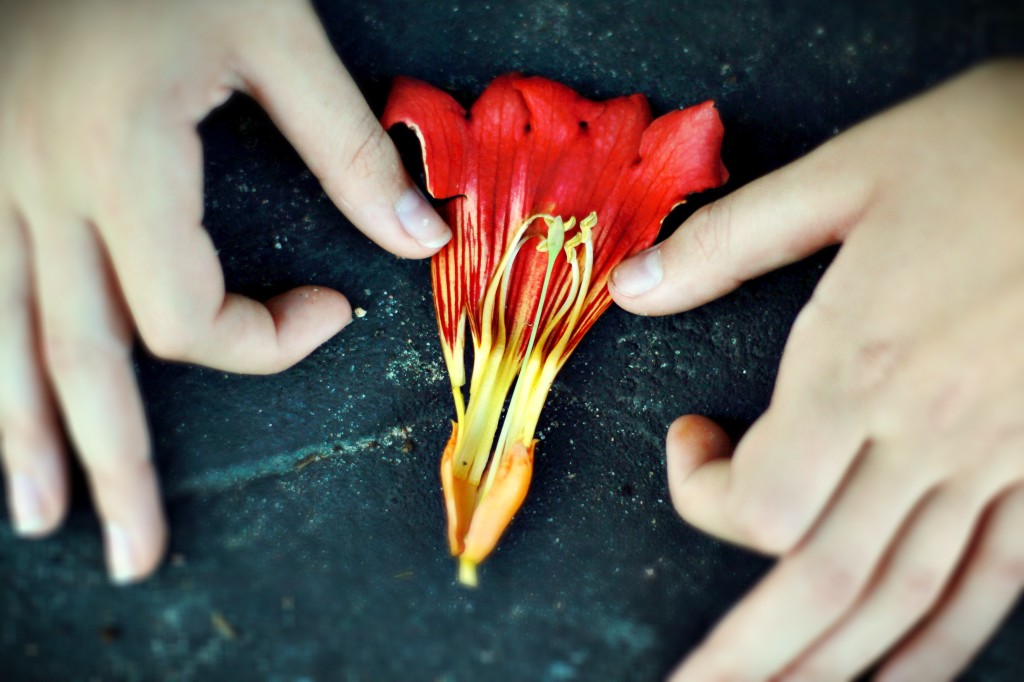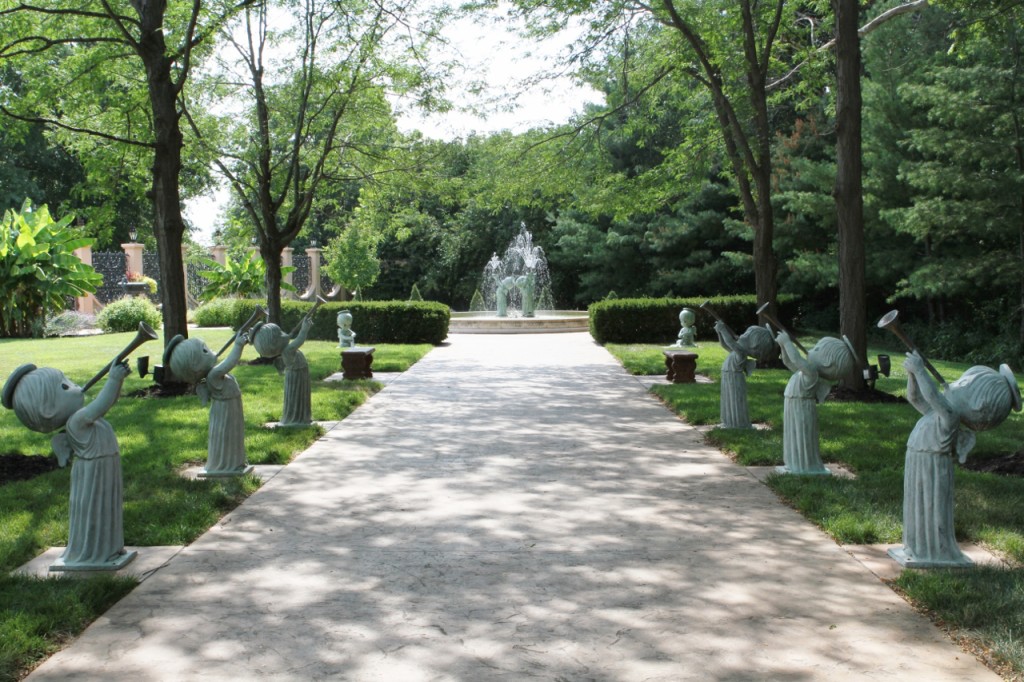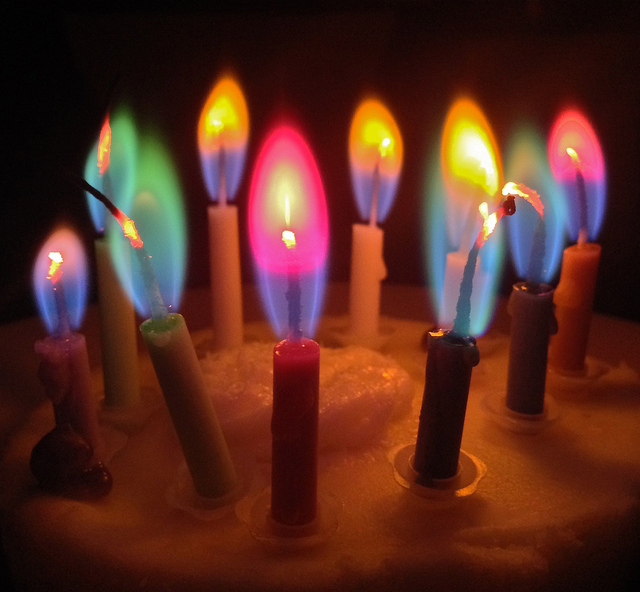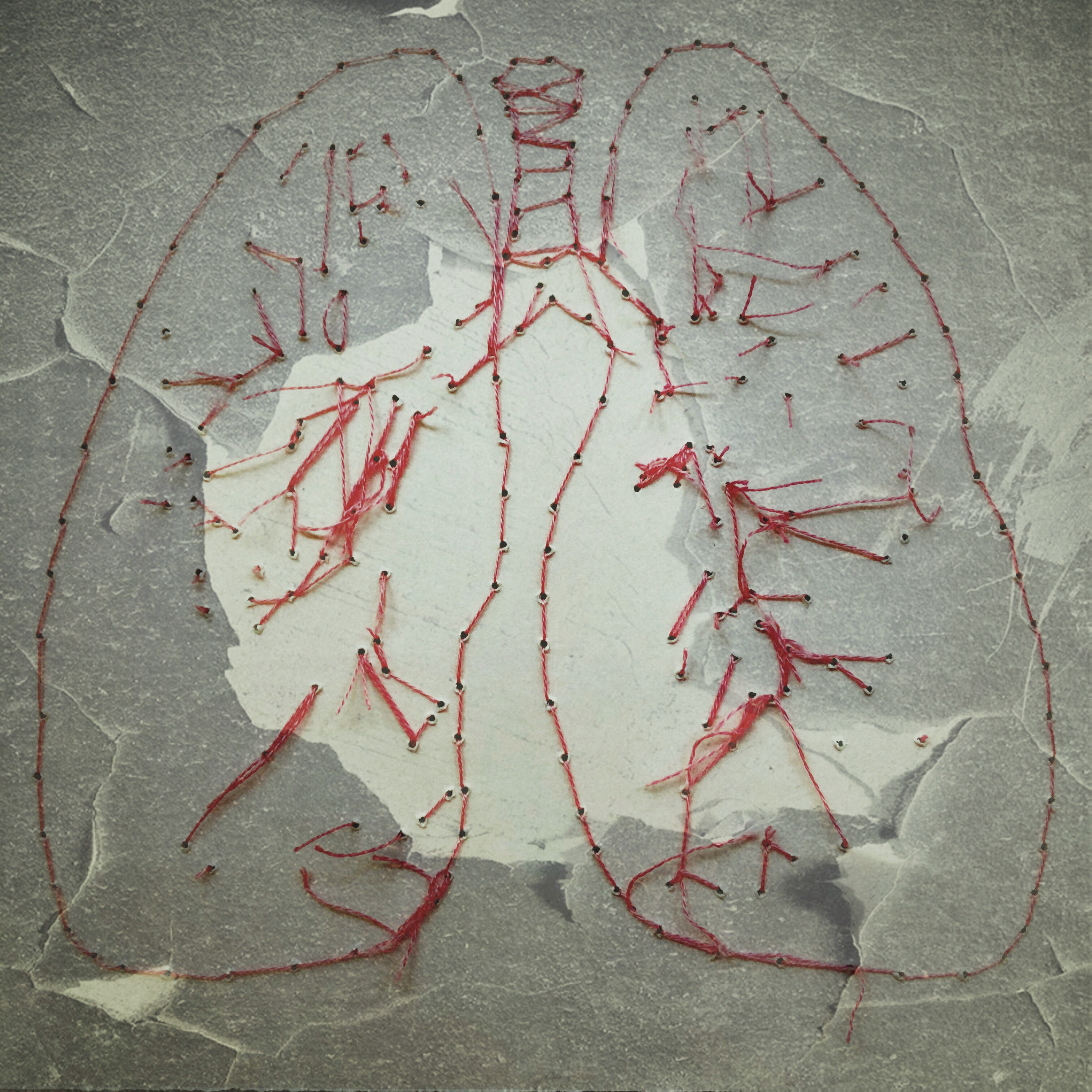
By Michele Coppola
My mother and I have shared a hospital room on my birthday twice in our lives. The first time we were joined by an umbilical cord. The second time, fifty-seven years later, by the coronavirus.
I left my cool green bubble of Portland, Oregon, on the morning of June 30, 2020. [Note: the Before Vaccine era. —ed.] I was coronavirus negative. I arrived in steamy Orlando, Florida, that night, and within four days was feverish, nauseous, and had a vicious cough that punched out my solar plexus like a prize fighter.
There’s no way I would have traveled during this pandemic unless someone was dying. That someone was my eighty-one-year-old father, who was deteriorating quickly in the nursing home where he’d been convalescing since a bad fall a couple of weeks earlier.
Nine days after my arrival, the man who gave me his eyes and smart mouth was rushed to the emergency room when he was found unresponsive. I raced my mother to the hospital, where they attempted to keep us out due to the spike in coronavirus infections in the area.
“My father is NOT going to die alone!” I yelled at the hospital administrator. I saw the security guards pass a look between them. I had the virus; I was sure of it. I knew they suspected it, as the sweat dripped down the side of my flushed, masked face. “My parents…they’ve been married sixty years. Please.”
In the end, the administrator relented. My mother, brother, sister-in-law, and I got to stroke my dad’s pale, waxy cheek, tell him we loved him, and that it was okay for him to go.
Three days after my father died, my mother and I were both on oxygen, bunkmates in a hospital room trading Jell-o.
•••
I finally landed in that hospital room after calling 911 when I nearly passed out trying to lift myself up from the couch. The cough had not relented, and I hadn’t eaten in two days. The paramedics who came to get me at my mother’s house had been there the night before to transport my mom, and they recognized me.
“Your turn, huh?” One of them asked jovially. I shook my head and tried to choke out some words. They had me loaded with tubes up my nose within minutes.
“Oxygen sat 84. Temp 103.3,” I heard one of them call out.
I was in the ER hallway for about an hour before they wheeled me into a curtained cubicle. One of the ambulance paramedics came inside, asked me if I was ok, then sat down beside me.
“Are you a person of faith?” he asked.
“No,” I said, with as much force as my oxygen-starved voice could muster.
His eyes widened and he sat back. That obviously wasn’t an answer he heard much. “Well. Would you mind if I prayed with you anyway?”
I had just enough strength for an eye roll. “If you feel like you gotta, go ahead,” I gasped out.
The paramedic took my hand and sincerely prayed for God to watch over me so I could one day “find my faith and be a witness for his grace.”
He should have asked God for an open hospital bed. The likelihood of finding one in Florida at that moment was as non-existent as me becoming a sister-wife.
I spent sixteen sleepless hours on that painful ER gurney while I waited, dragging an oxygen canister with me when I had to pee while trying to hold a breezy hospital toga closed. The clothes I’d arrived in were wadded in a plastic bag, rank with fever sweat.
At some point during those endless hours, I got a call on my cell from a hospital social worker who didn’t realize I was just downstairs. She informed me that my mother—who was still on oxygen, disoriented, and using a bedpan—was, nevertheless, well enough to go home.
I told her that there was no one available to care for my mother because my brother lives four hours north and I was now hospitalized, downstairs in her hospital, with COVID-19.
“Oh, how awful,” she said with practiced sympathy. “But you’ve got to figure something out because we need the bed. Maybe you could hire full-time care? I’ll send down some information for companies who do that.”
“And how much do you estimate home care would cost?” I asked.
“My guess would be in the neighborhood of $1700 a week,” she said, as if it were anywhere close to a reasonable number.
I wanted to cry, but the truth is I hadn’t shed a tear since my father died. The shock of his death, the need to stay upright to care for my collapsed mother, and the sudden reality of my own illness—it was all packed tight, damming up the river of grief behind my eyes. And now while struggling to breathe myself, I had to figure out what to do with a barely functional parent.
It was my brother, normally the chill King of Confrontation Avoidance, who came to the rescue.
“We’re not gonna pay $1700 to have someone do what y’all should be doing,” he thundered at the social worker when he got her on the phone. “Why can’t you put my mom and my sister together in a room? They’ve got the same thing!”
Something else of note that happened that night: After spending the better part of the last thirty years resenting my younger sibling for never visiting me in Oregon, I forgave him.
•••
My mother has only awakened twice since I joined her in the room: once to acknowledge my arrival and once to be taken to the bathroom. Months later she will tell me she remembers very little about being in the hospital at all, and it is no surprise.
Other than the muffled chaos on the other side of the closed hospital room door, everything is hushed. Except my brain, which is an out-of-control Tilt-A-Whirl.
I have COVID.
I have COVID.
I might die.
No, I am not going to die. Stop being stupid.
My dad is dead. I will never see him again.
Oh God, am I going to end up on a ventilator?
When will I be able to take a shower?
I have COVID.
Do my dogs think I am never coming home?
I am a statistic.
Am I going to die?
I have COVID.
The IV fluid machine beeps when my oxygen level dips, which is often. It is not comforting. I turn on the TV and see Florida’s beefy, blue-blazered governor bloviating that his state—which has some of the highest rates of infection in the nation—is handling the pandemic just fine.
“We’ve got a health system that’s working,” he says. “Anyone who needs a bed can get one.”
The nurse assistant who came in to empty our trash cans looks up at the TV and shakes her head.
“We just need to turn this whole thing over to Jesus,” she sighs.
•••
Three times a day I must remind the ever-changing aides to cut up my mom’s food and help her eat. Her hands are frozen with stress-induced arthritis, and she sleeps twenty-two hours a day. This is the woman they wanted to send home because they needed the bed for sicker people. I am furious all over again.
But it is not the fault of the hands-on hospital staff. They are, to a one, helpful and kind—zipped head-to-toe in PPE jumpsuits, industrial blue Oompa Loompas with exhausted eyes behind shiny plastic face guards.
My guess is that the doctors are equally fatigued, but I wouldn’t know for sure because you rarely see one. I’ve requested an audience with a physician every day since I was admitted so I can get some clarity on my mother’s condition as well as my own.
Finally on Day 3, a harried doctor arrives and informs me that in addition to COVID-19, we both have pneumonia. My mother is also on pain medication for her acute arthritis and is being treated for a severe bladder infection, which in elderly people often causes confusion and disorientation.
“But actually,” says the doctor, “you’re sicker with COVID than she is. When you came in your fever was higher and the scans showed more lung inflammation.” He says I will probably be there for several days and not to be surprised if it gets worse before it gets better.
My husband is back in Oregon, and we have agreed for his safety and my peace of mind he will stay there. My cell is dead, so he passed along my hospital room phone number to my best friend, who is frantic with worry.
Her voice breaks and wavers at the end of our conversation, and as is her way, she cuts right to the chase. “Please don’t die, okay?”
•••
Day 4 in the hospital is my birthday. Since COVID-19 wasn’t able to take down my hedonistic sense of taste and smell, I order pasta for dinner—and for the first time since I arrived here, a dessert.
I am informed by an apologetic kitchen staffer that I can have pasta or dessert, but not both, as the attending physician has put me on a modified diabetic eating plan. I opt for the pasta. Then I order a meal for my mother, who is barely eating. She is getting chocolate cake for dessert.
Like much of the rest of the western world, COVID-19 hates fat people. The TV news spouts statistics showing that in addition to people over sixty-five, the patients most likely to develop serious complications from the virus are those with obesity and its BFFs high blood pressure and diabetes.
That would be me. Both my blood pressure and blood sugar are well controlled with medication and exercise, but I’m under no illusions about what carrying around so much extra weight at my age means for my health. Unlike many self-designated social media health experts and internet trolls, however, I don’t believe I deserve to die from COVID-19 because I’m fat.
But my weight is likely part of the reason I’m lying in a hospital room next to my faded southern beauty of a mother, who sleeps open-mouthed and corpse-like, in the mechanical bed next to mine.
She looks like a week-old cut rose, the petals and leaves all browning at the edges. I love her so much.
•••
Why is it that so many health crises seem to happen on the toilet? That’s where my mom collapsed at two a.m. the night she was brought here, and it’s now where I am starting to panic because I am unable to stand up.
My head has been a helium balloon all day, my oxygen levels rarely above 95. A respiratory therapist came in to consult earlier and after he turned up the levels on the O2 concentrator, I started to feel a little better.
Or at least I did until right now, when I tried to get up from the commode. I’m swimmy and damp with sweat. My lungs will barely inflate.
By the time I make it back to the bed ten steps away, clinging to the wall, I’m gasping and almost in tears. The sweat has cooled and I’m shivering but too exhausted to pull the sheet up. Panic is frantically knocking, knocking and I grip the mattress with both hands. My mother has slept through all of this.
I try to force my lungs to take a deep breath and I choke. The edges of my vision darken, my heart flutters. I am terrified that if I call a nurse, they will put me on a ventilator. I am equally terrified that if I don’t call, my brain will start to die from lack of oxygen.
I am fat, middle-aged, not rich, and not beautiful. My only worth and value to the world is, and has been, my sharp, creative brain. If I lose that I am a useless blob.
My insecurities are pathetic and not rational. But they make me hit the call button and save my own life.
•••
Two days after I thought I was going to die, I am discharged from the hospital at ten p.m. with portable oxygen. My mother will stay in the hospital for another few days until a bed opens up in a COVID-19 rehab facility, because she is going to need more care than I can give her right now.
I end up spending three extra hours at the hospital after the doctor officially releases me because I must arrange a ride back to my mother’s house fifteen minutes away. As a COVID-19 patient, rideshares and taxis are out, and an ambulance would charge $300 a mile.
Eventually it is Heidi, one of my mom’s dearest neighborhood friends, who dons a mask and gloves and comes to get me. Heidi has also been braving my mom’s virus-drenched house to feed the cat and bring in the mail. She is an angel in cropped pants and my hero.
When I get back to the house I collapse on the couch and remain there, hooked to an oxygen tank—and in the same dank clothes I was wearing when I was taken to the hospital a week prior—for the next three days. My hair is greasy, my skin slimy, my nostrils raw from the oxygen tubes. I stare at the decaying flowers with still-jaunty bows sitting all around the house, sent after my father passed.
Oh, right. My dad is dead. My gut lurches.
The next morning it takes me a half hour to get up and go to the bathroom. Any movement leaves me breathless and swaying. Days slide into nights. The house landline phone rings and rings and rings. I know people are worried but talking leaves me dizzy and exhausted.
After a few days I start picking up the phone. “No, there’s nothing you can do. Thanks,” I repeat, over and over and over to people who wouldn’t come near me even if they were close by.
One of my North Carolina cousins from my mom’s side of the family calls. Her mouth-full-of-marbles voice is thick with concern and for once, I am truly thankful she is the type who prefers talking to listening. Towards the end of our conversation, she asks if she can play me a hymn on the piano over the phone. A sweet gesture from a pure heart.
“No thanks. I just need a nap right now,” I rasp.
“Well, we’ll be prayin’ for ya,” she says.
•••
On the fourth day I finally disconnect from the oxygen tank (I have named it O2D2) to take a shower. Afterwards, I stand in the stall in a daze, dripping. With only a towel covering me, I make it to the couch and sit there, tubes in nose, bare butt on microfiber, for several hours.
It occurs to me how alone I am. Had I passed out trying to scrub my pits, when would someone have found me? I refuse to let my healthy brother and sister-in-law near me, and only a few of the Necco-wafer-colored houses nearby are occupied because the snowbirds vacate this swamp in summer. So if a COVID survivor falls in the shower and there’s no one to hear, does she make the news?
Flipping through TV channels, I see a report that the coronavirus death toll is over 150,000. Trump says that the U.S. is handling things very well, much better than most other places, whatever that means.
The house phone rings. It is a medical assistant from a local clinic twenty-five miles away where nearly three weeks ago, after calling around for hours, I had finally managed to get my mother and me tested for COVID-19. At that time there were no rapid tests and results were taking a minimum of ten days.
The medical assistant is apologetic. “I’m calling to let you know that both you and Shelby Coppola’s tests came back positive,” she says.
“Well, that would explain why my mom’s in the hospital and there’s oxygen up my nose,” I say.
•••
A six-legged, cicada-type insect takes up residence on the front door about two weeks after I am released from the hospital. It is the size of a toddler and looks like some sort of plague-house marker from the underworld.
I say hello to it when I finally leave the house to get my mom’s mail at the box across the street.
It is late July now, and the central Florida morning air has all the breathability of moist, day-old underwear. I make it to the mailbox and back but require a half-hour session with O2D2 to recover.
I soon learn that the plague cicada has indeed come to warn of an impending condition nearly as distressing as the coronavirus itself: the antibiotic-resistant, I-eat-Monistat-For-Breakfast Yeast Infection.
Like most COVID-19 patients, my treatment included large doses of steroids. This can spike blood sugar, which then makes you susceptible to severe yeast infections. I am unable to walk upright and peeing makes me scream. The infection then spreads to my backside and all elimination becomes torture.
When it’s obvious that the first course of yeast infection antibiotics prescribed via teledoc isn’t going to work, I drive to an urgent care clinic to see a doctor in person. The small waiting room is packed full of masked, coughing patients sitting just a few feet apart and I am informed that even though I have an appointment, there is a three-hour wait.
So I sit in the car for those hours, reading news on my phone and, when the thick stickiness of the late morning becomes too much for my weakened lungs, I run the air conditioner. Two hundred fifty-three more people died from the virus yesterday in Florida, the highest one-day death total so far in the pandemic. Governor Blue Blazer is annoyed that the media is focused on deaths rather than falling infection rates.
I am focused on breathing while I wait, and on the chronic queasiness I know is the result of worrying about my mother. I cannot stop thinking about her, desperately lonely and grieving in a spartan rehab center. By the time she comes home she will have been locked in—wearing nothing but a hospital gown and socks—for 22 days. She has no one for company except the attendants who bring her meals and whomever she can reach on her cell phone.
I feel incredibly guilty that I was not well enough to care for her and spare her that.
The second course of antibiotics from the urgent clinic doctor finally works, and a few days later I am no longer petrified when I feel the need to urinate. Most of all, I can now breathe, deep and full. Deep and full.
The plague cicada disappeared a few days later.
•••
I’m not sure what day it is, but I observe that all the houses in my mom’s subdivision have their garbage bins out, so I go around and pick up all the dead flowers, collect the other household trash, and take it to the curb. The next-door neighbor sees me, waves, and walks up the driveway. But only so far.
“How’s your mom doing?” she asks.
“She’s as well as she can be, considering,” I say, shading my eyes from the relentless sun. “We hope she can come home in the next few days, once she gets a second negative COVID test.”
“We were all sorry to hear about your dad,” she says kindly. “I know he’d been sick for a long time. What happened?”
“Heart failure and sepsis.”
The neighbor nods. “Yeah, but I bet they listed COVID on his death certificate. They’re doing that now to make the hospitals more money.”
I look at her and shake my head. “Sorry, but I don’t believe that,” I say. “And no—his death certificate had heart failure and sepsis on it. That’s all.”
She pauses a moment. “Well. I know it’s going on other places. You let your mom know we’re thinking of her and lifting you all up to the Lord.”
“I’ll do that,” I say.
•••
My husband Facetimes me, eager to show me how his worry and stress have manifested into a garage so clean and well-organized we can now fit my car inside. He also mentions that the hospital bills have started to roll in at home.
“Over five thousand bucks for your day-and-a-half in the emergency room—that’s before you even got to a real bed,” he tells me. “Let’s hear it for good insurance.”
Remembering the miasma of panic, near-suffocation and back pain I felt during that endless day and night in the ER puts my privilege into stark relief. Until now, I had the luxury of suffering through that without even giving a thought as to how we would pay for all this.
That realization almost makes me cry. Almost. But the truth is that except for the night my dad passed away, I still haven’t shed tears about anything. I think maybe my overwhelmed brain is using denial to cope, and that scares me a bit.
What also scares me is that my mom is coming home soon and I have no idea what kind of shape she’ll be in. I know she is still not walking well and her emotional state has deteriorated. She’s also not eating much but it’s mostly because she hates the food at the rehab center.
“Yesterday they brought me something that looked like diarrhea on a tortilla,” she complains.
“Well, tell them to bring you something else,” I suggest.
“I did. I had a couple of bites of a sandwich. It wasn’t good either. But the girl who brought it was sweet and it was so nice to have someone to talk to,” she says, and starts to cry.
•••
A month later, my family boards a small fishing boat to take my father’s ashes out to sea, per his wishes. My mother has been out of rehab for a few weeks and she’s shaky, but steady enough.
I seem to have bounced back pretty well. I don’t know it yet, but soon I’m going to start losing my hair—which infectious disease expert Alyssa Milano has already informed the world is an after-effect of COVID. Right now, though, it’s getting tangled in the late afternoon breeze as we speed out into Tampa Bay.
Once we are the required three miles from shore, the captain cuts the motor. We all share some memories about my dad, and my mom reads a poem she wrote for him on their forty-fifth anniversary. We play Sinatra’s “My Way”, and my brother chokes up as he pours my dad’s cremains into the choppy, jade-green water.
The rest of us throw flowers in the stream of ashes, which sparkle a little as they sink, then disappear. I didn’t realize ashes would sparkle. On another day I might roll my eyes at the thought, but today I let myself believe that those sparkles are my dad saying goodbye.
I also realize that I am finally crying, a salty stream down my cheeks and neck.
My mom sees me wiping away the tears and rubs my back, the way only mothers know how to do. “I can’t believe he’s gone, either,” she says. “I just can’t believe it.”
I shake my head. “You know mom, I’m devastated about dad. But I think I’m really crying ’cause I’m just so relieved we got to do this for him. I mean, we’re breathing. We made it.”
“Don’t ever tell me prayer doesn’t work,” she says, squeezing my hand.
The captain starts the motor and turns the boat for shore. We all look up and squint into the dissolving sun.
•••
MICHELE COPPOLA is a former radio personality who now works as a professional copywriter and freelancer. Her work has appeared previously in Full Grown People, The Oregonian, Spot Magazine, and various literary journals. She lives in Portland, OR with three senior rescue dogs and a stray she married named Bryon.

 Follow
Follow

